







Summer travel ceased; revenue generated from student travel programs ground to a halt during the pandemic. Employment for chefs, zipline operators, artisans, country program leaders and more rapidly declined. This became a huge problem in villages where there are no backup plans to put food on the table.
In Fiji, many citizens returned to their roots, relying on fishing and farming to get by. That wasn’t always enough, so the government stepped in or the local residents went without. After an extended period of time struggling through this, these communities are now working to get back on their feet.
Here are some of the ways Rustic summer travel programs make a difference.
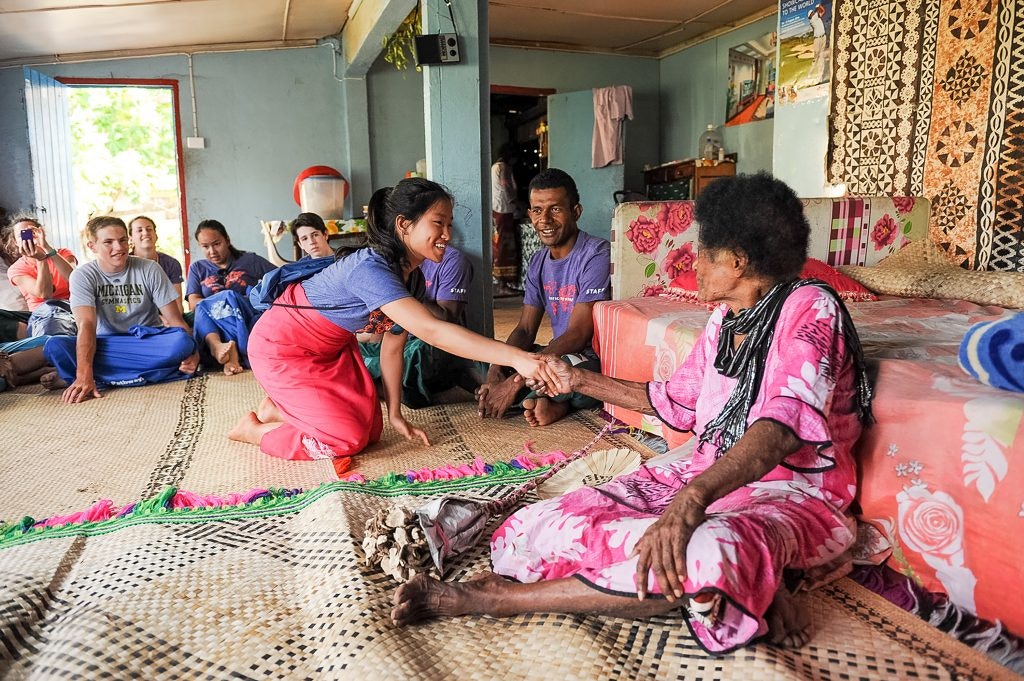
Be greeted like family in Somosomo village. Copyright: © 2015 Rustic Pathways
In some villages with unsteady income, Rustic students have helped community members build small chicken coops and piggeries that give them another revenue source. They’ve also assisted artisans in making women’s purses and other products to sell.
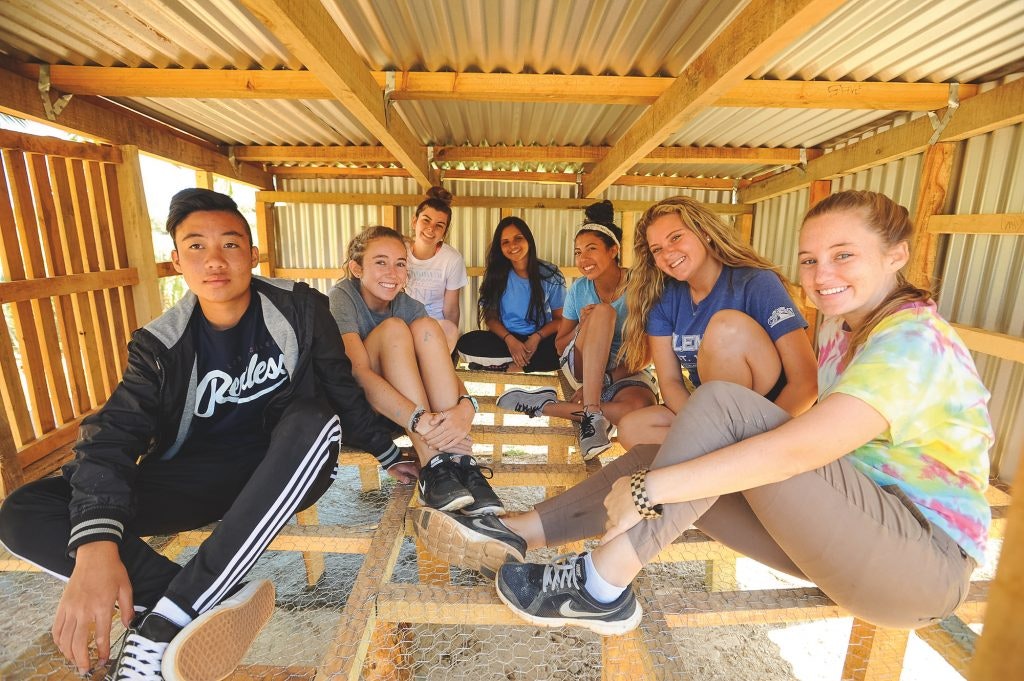
On a larger scale, students helped build a tilapia fish farm in Costa Rica to generate income. During the process, students learned about food sources and how the goods they buy are created and marketed.
Clara Matlack, who traveled with Rustic to Peru, said these kinds of projects helped her appreciate responsible economic practices.
“One of the biggest things I’m going to take away from this trip and hopefully carry with me for the rest of my life is the importance of fair trade and responsible tourism,” Matlack said.
Many of the Rustic service projects aim to make improvements that help local businesses thrive. As an example, students on the Marine Life and Coastal Restoration program in the Dominican Republic build buoys to protect reefs. This is important for both local fishermen and those in the tourism industry.
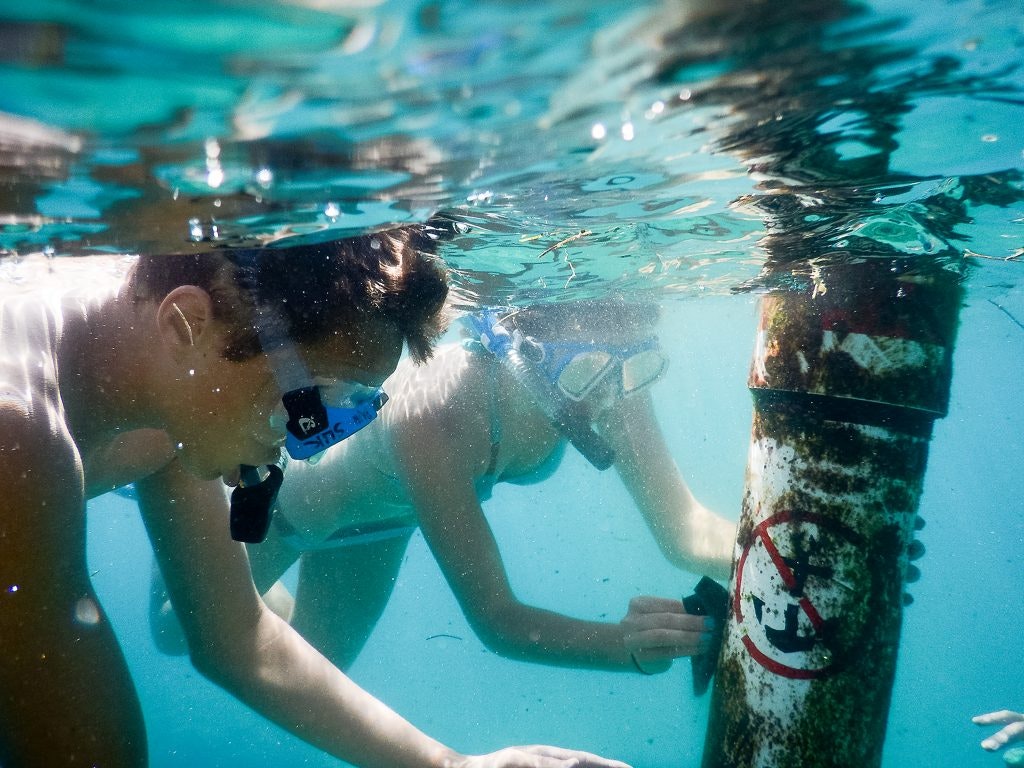
Get in the water to clean buoys and work on projects that encourage coral reef reproduction. Copyright: © 2016 Rustic Pathways
The buoys guide fishermen away from reefs so they are not damaged. In turn, those reefs are important for the local ecosystem that the fishermen depend on. They also are important for local tourism that relies on a healthy coastline.
 On other programs in the Dominican Republic, students assist sugarcane growers, which is a leading industry on the island. During the Life in the Bateyes program, students work on agricultural projects and learn how cane is planted and cut. Jessica Sheehan, who traveled with Rustic to Peru and the DR, says the experience was eye-opening
On other programs in the Dominican Republic, students assist sugarcane growers, which is a leading industry on the island. During the Life in the Bateyes program, students work on agricultural projects and learn how cane is planted and cut. Jessica Sheehan, who traveled with Rustic to Peru and the DR, says the experience was eye-opening
“It wasn’t until we stepped off the open-air bus in Jarabacoa, or saw the never ending fields of sugar cane in the Bateyes that I began to truly understand what a small fraction of the world I had actually come to know,” Sheehan said.
Similar projects and experiences occur in programs across the board, as students support communities around the world.
This is one way students have a very direct impact. In several programs, students are given the opportunity to buy souvenirs and other items from local merchants. In Morocco, they shop at the souqs in the beach town of Essaouira. In Peru, students visit artisan markets in Cusco. In Ecuador, they visit the famous Otavalo artisan market. Overall, in a number of programs, there are opportunities to support local merchants and bring home a tangible memory.
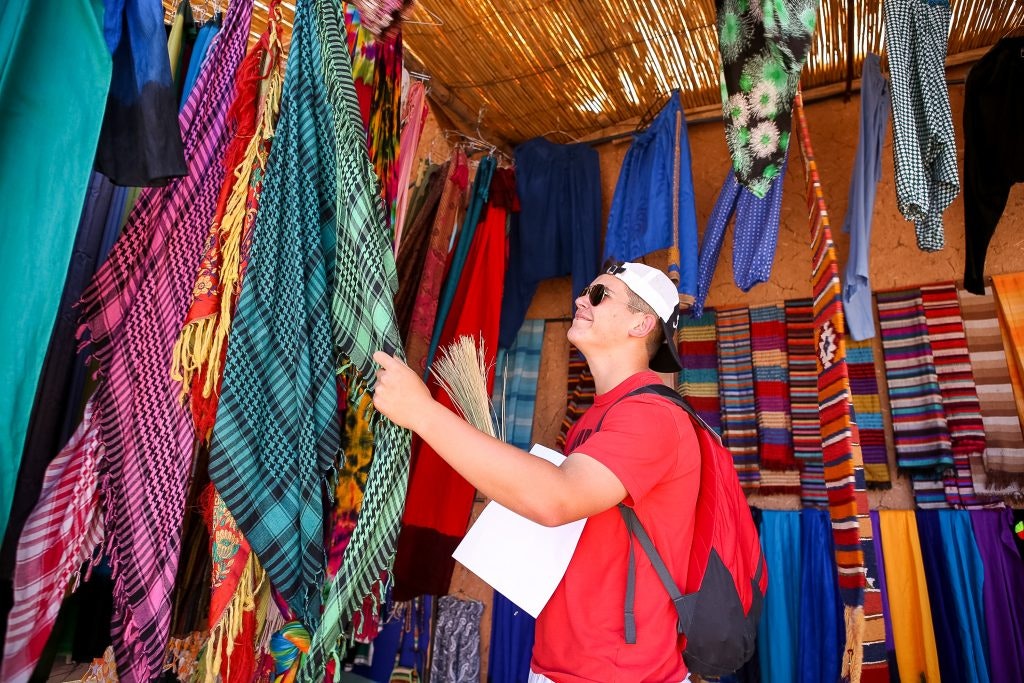
Practice haggling for souvenirs, watch vendors hawk their wares, and try local treats in Marrakech. Copyright: © 2015 Rustic Pathways
Even students who don’t buy souvenirs are making a contribution just by joining in a program. During a program, local residents fill important roles such as cooking, cleaning and driving. They also lead adventure activities like surf instruction, white water rafting operation and more.
Over the years the Rustic Pathways Foundation has worked with donors to fund ongoing projects in many countries, including the building of schools and the installation of aquifers to supply water to villages. These projects lay the foundation for future economic stability in these regions.
To assist in the process, a number of alumni have become impact ambassadors to keep raising money for these projects. This includes Charlotte Maracina who created a Girl Scouts’ Gold Award project after traveling to Fiji. She worked with the Rustic team to design and fund a café at the Eco-Lodge base house in Fiji. She even returned to Fiji with her family to aid in the construction.
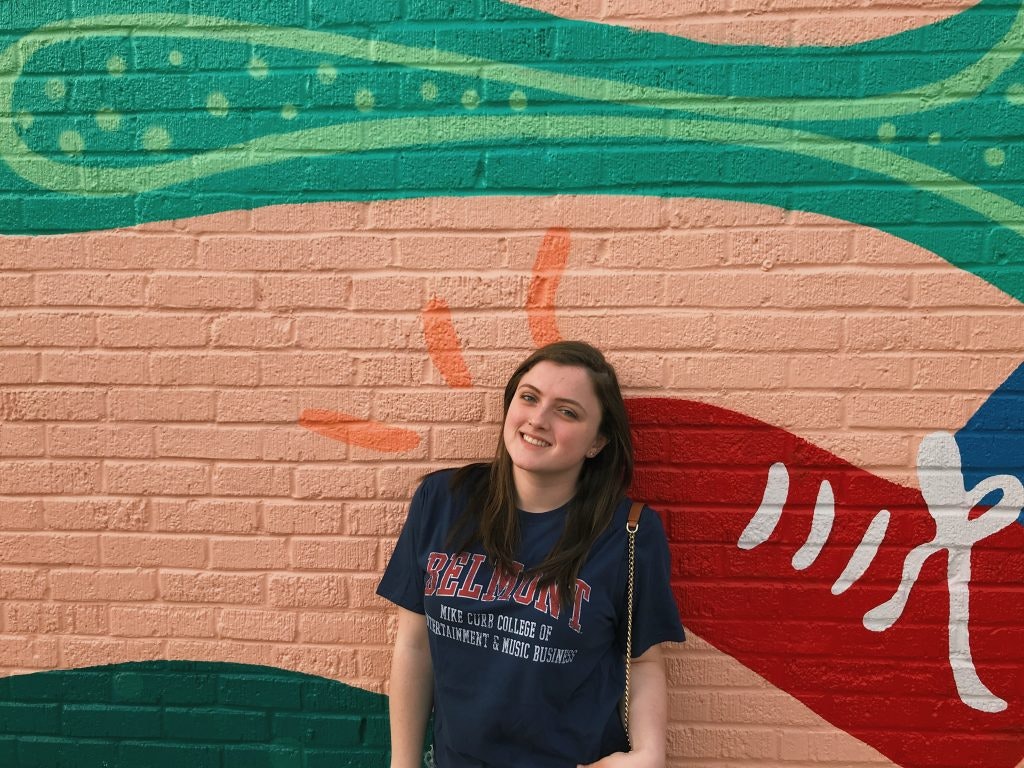
Photo: Charlotte Maracina
“My short two weeks in Fiji has been resulting in a domino effect like no other,” Maracina said.
Daniel Chan was also impacted in a similar way by his Rustic trips. He traveled to Costa Rica to participate in a leadership program and the Turtle Conservation Project. He said the joy he encountered among the people he met in Costa Rica inspired him to launch a fundraising campaign for them when he returned home.
“I realized that water supplies and purification were lacking in certain areas of Costa Rica. Thus I was determined to make a change,” Chan said.
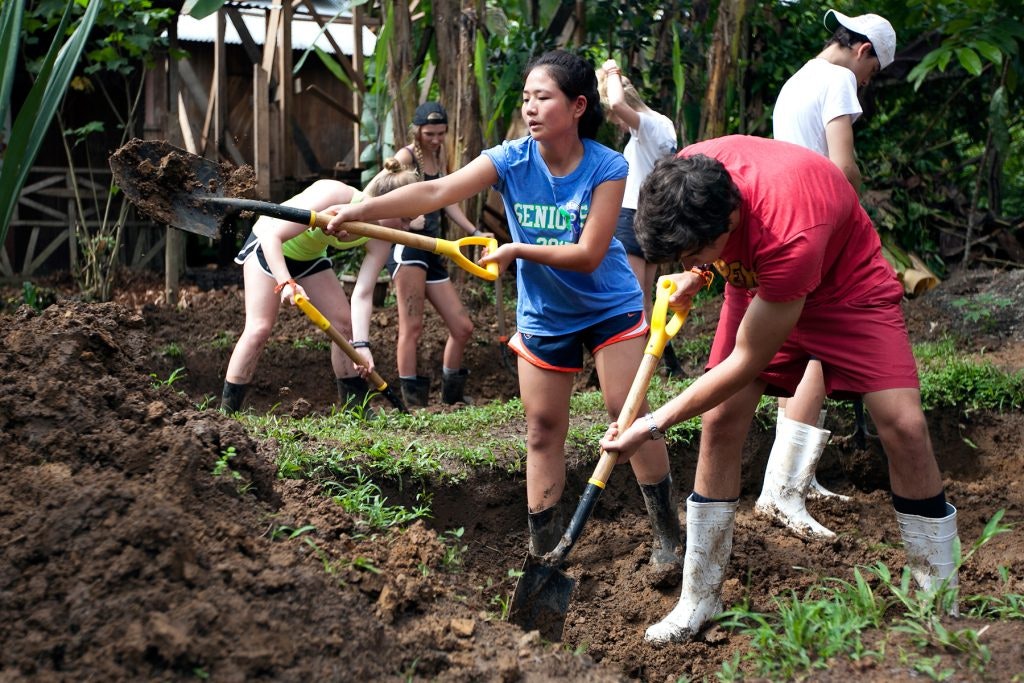
His efforts paid off, and he raised more than $17,000 for an aqueduct project. These types of projects have made a major difference in local communities in a number of countries.
For more information about this work, visit the Rustic Pathways Foundation page. For a broader look at how students impact the places they travel, please visit our global impact page.